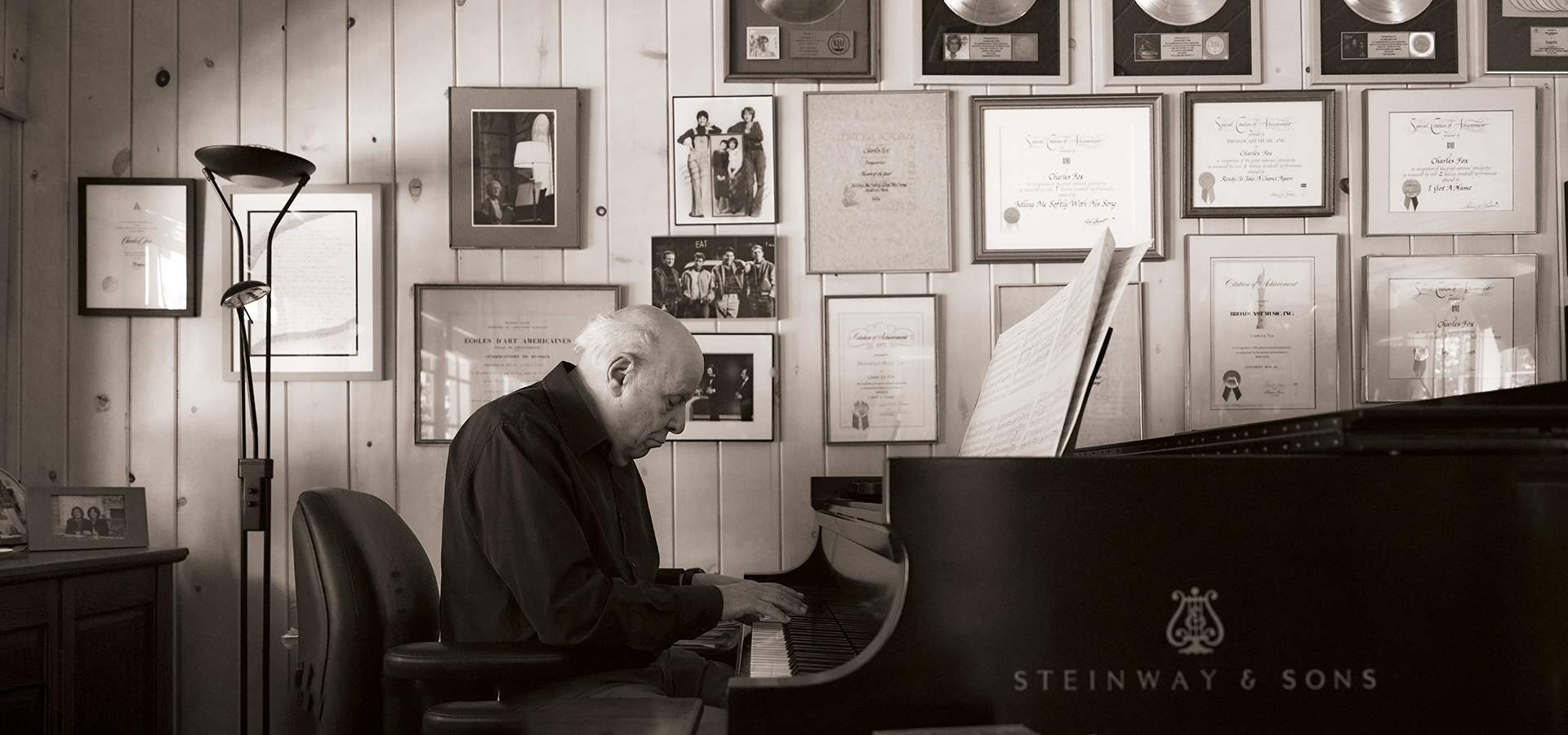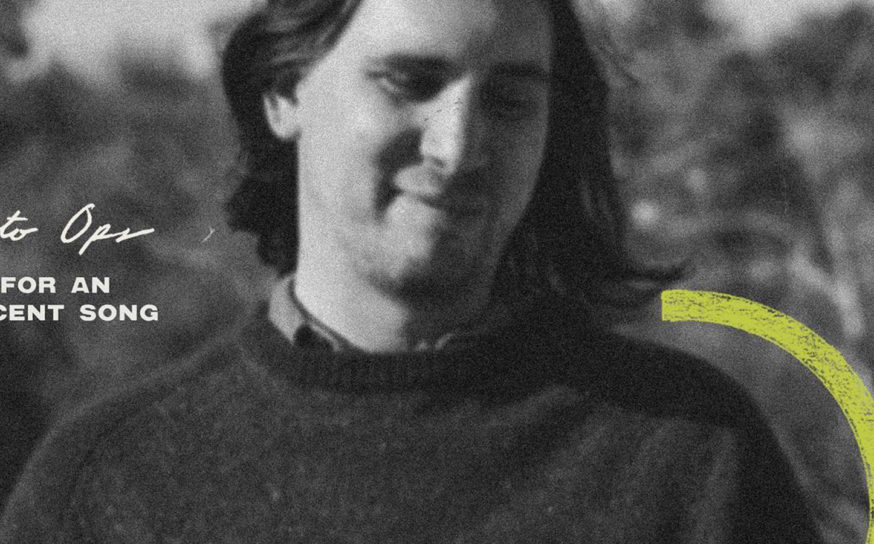Charles Fox Has Written the Songs You’ve Been Humming All Your Life
Now meet the music man.
-
CategoryArts + Culture, Film + TV, Music + Podcasts
-
Written byRobert Earle Howells
-
Photographed byMichael Becker
What if I told you that the same composer who gave us the eternally catchy theme song to Happy Days back in 1974 also wrote and conducted, 35 years later, a moving oratorio called Lament and Prayer for the Poland National Opera Company? And that the same man who penned the themes for Love Boat and Love American Style has written three orchestral suites for internationally renowned ballet companies?
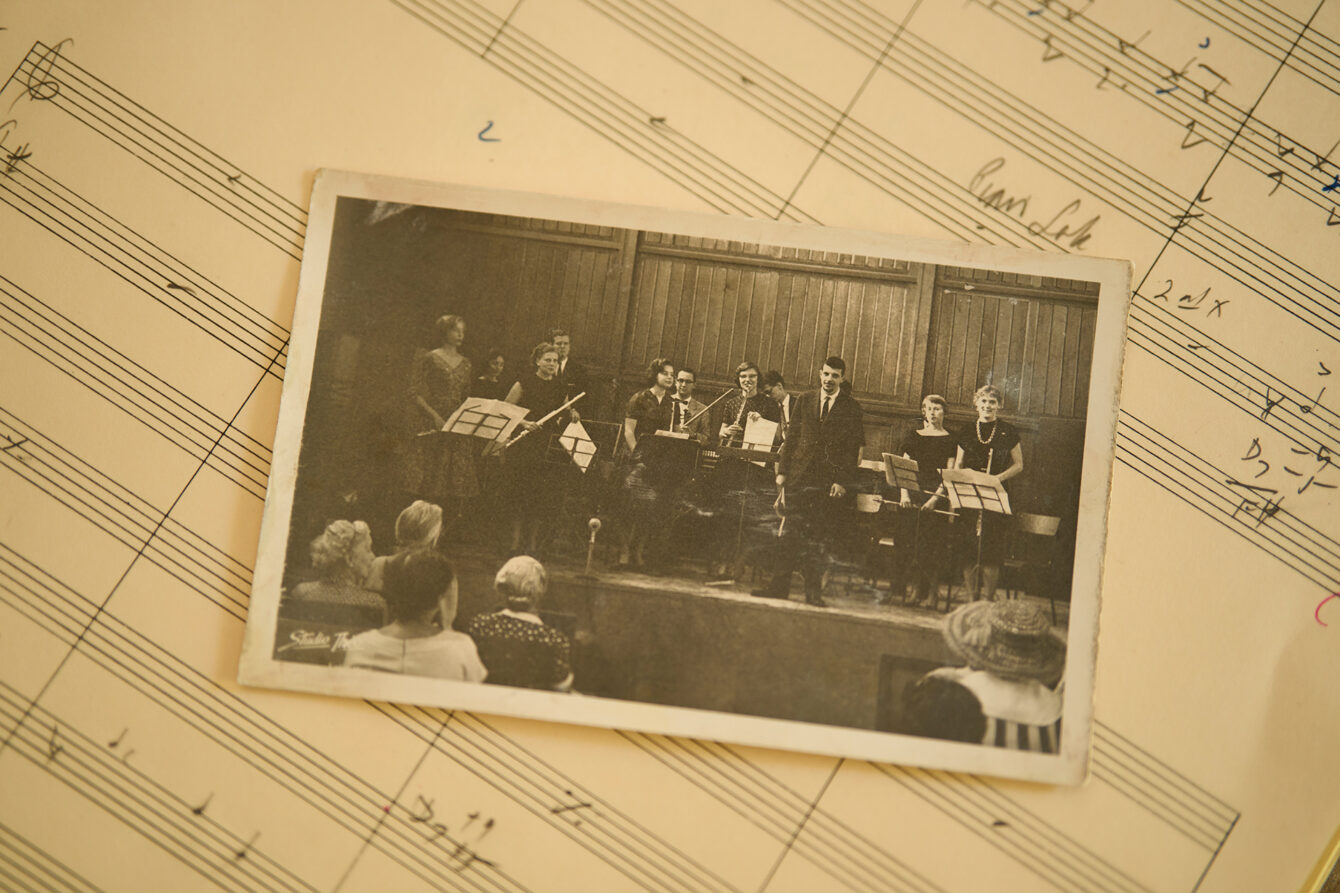
I’m just getting started.
What if I told you the same man who wrote the Grammy Award-winning song “Killing Me Softly With His Song,” popularized by Roberta Flack in 1973, also wrote the Jim Croce hit “I Got a Name”? And listen up, sports fans—this same guy also wrote the stirring theme for ABC’s Wide World of Sports. (You know: “The thrill of victory, the agony of defeat.”) And soon after, the theme for Monday Night Football.
All of this is on top of dozens of film scores, numerous other TV themes and other concert works. The same man wrote them all.
The man is Charles Fox, who is 83, lives in Encino, and the fact that he’s still active, still composing and still performing shouldn’t by now surprise you.
But maybe this will: For all of his accomplishments in classical and popular music, Charles Fox’s composing and performing passion—you might say obsession—is salsa music.
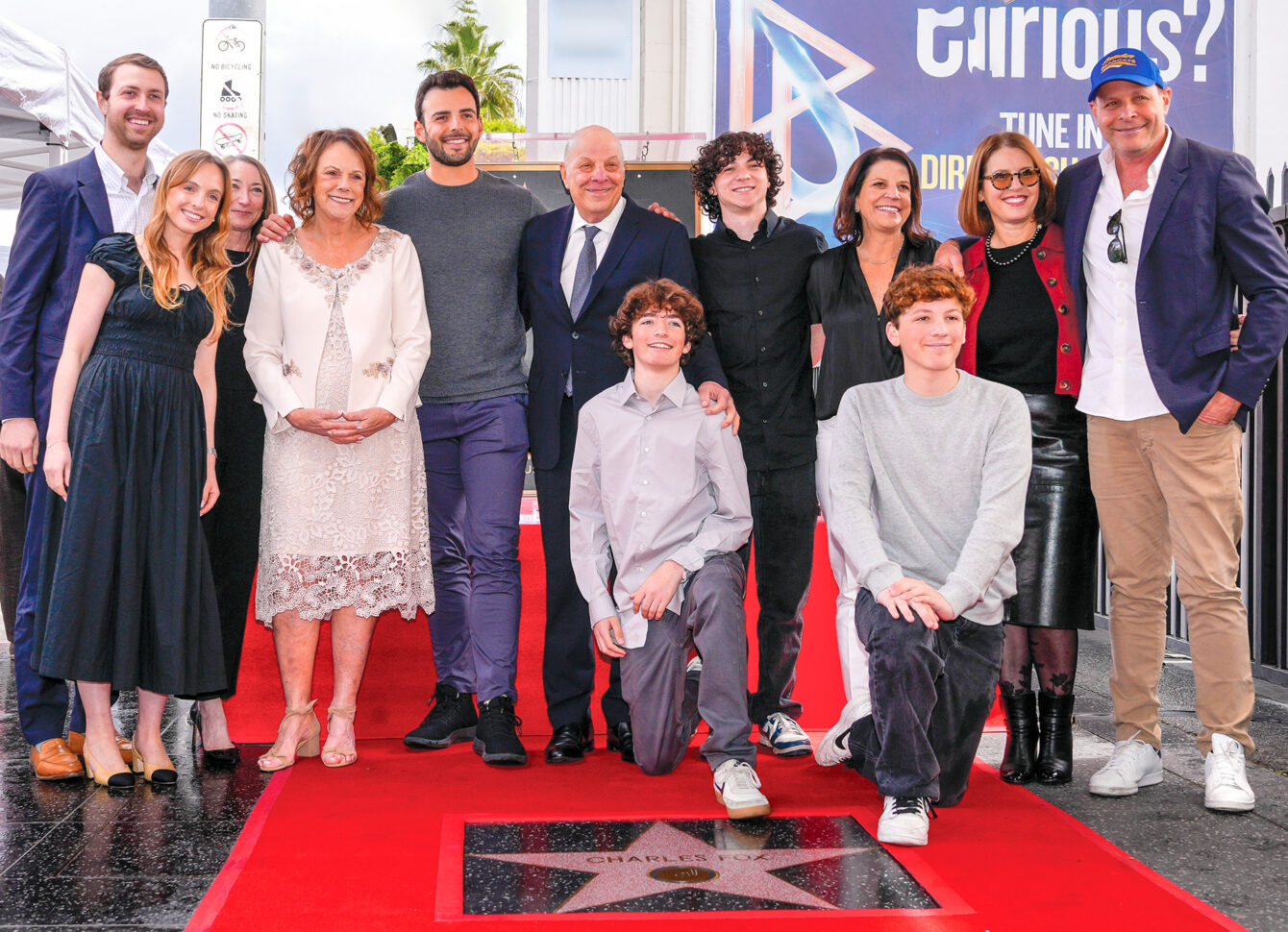
Charles’ role as a salsero is on full display in the recently released bio documentary Killing Me Softly With His Songs, directed by Danny Gold. The film opens in Havana, Cuba, in something of a dream sequence, with the composer strolling down a quiet avenue where he encounters a solitary piano and begins to plunk out an exuberant salsa tune. He’s quickly joined by brass players, drummers, a flutist, and wildly attired dancers who orbit Charles and his piano as the music builds, folks begin dancing from their balconies, and soon it seems the whole world is moving to his music.
In a sense, that’s been the case for more than 50 years. As a title screen at the start of the film puts it, “You may not know his name, but you know his music. Millions of people hear his music every day.”
So how did a Jewish kid from the Bronx, dutiful taker of piano lessons, end up being heard by millions every day, in a career marked by mastery of so many musical genres?
Early on, you could say he was in it for the money. His father, a window cleaner by trade but also a skilled mandolin player, would sweeten Charles’ allowance by 10 or 15 cents when he would accompany the old man on the piano. The boy’s keyboard aptitude got him into the prestigious New York City High School of Music & Art, where he developed an interest in jazz. Then on a summer visit to the Catskills, hoping to find a jazz gig, 15-year-old Charles encountered a performance by Venzuelan bandleader Randy Carlos and, “I fell in love with Latin music. I bought all the records I could afford and became a Latin piano player.” Rather precociously, teenaged Charles played with some of great Latin bands in New York.
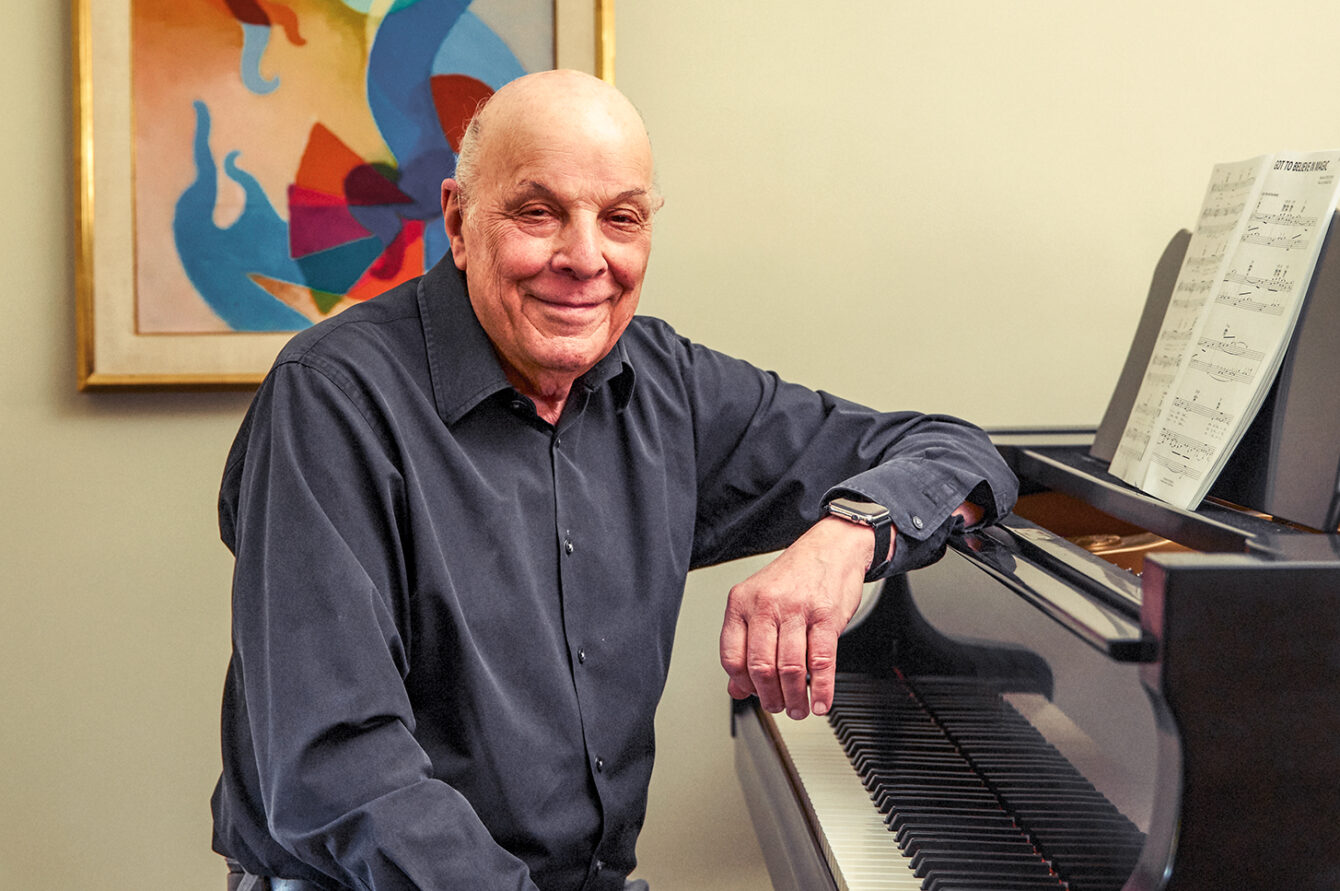
But, he says, “The real story of my music begins in Paris.”
Encouraged by one of his piano teachers, the Fox family scraped together the money to send 18-year-old Charles to Paris to study with Nadia Boulanger, or “Mademoiselle,” as her pupils called her. Boulanger was the most celebrated composition teacher of the 20th century—one of her pupils, a generation before Charles Fox, was Aaron Copland.
On a recent visit to Charles’ memorabilia-filled studio-office on his sprawling property in Encino, he shows me a photo of his 18-year-old self with his 72-year-old mentor, and reads me an end-of-term evaluation she wrote: “A composer, has flair and sensibility. Needs to develop his technique. Must be followed with keen interest. He has written a piece for the concert: 5 Flutes, trumpet and strings. Absolutely charming.”
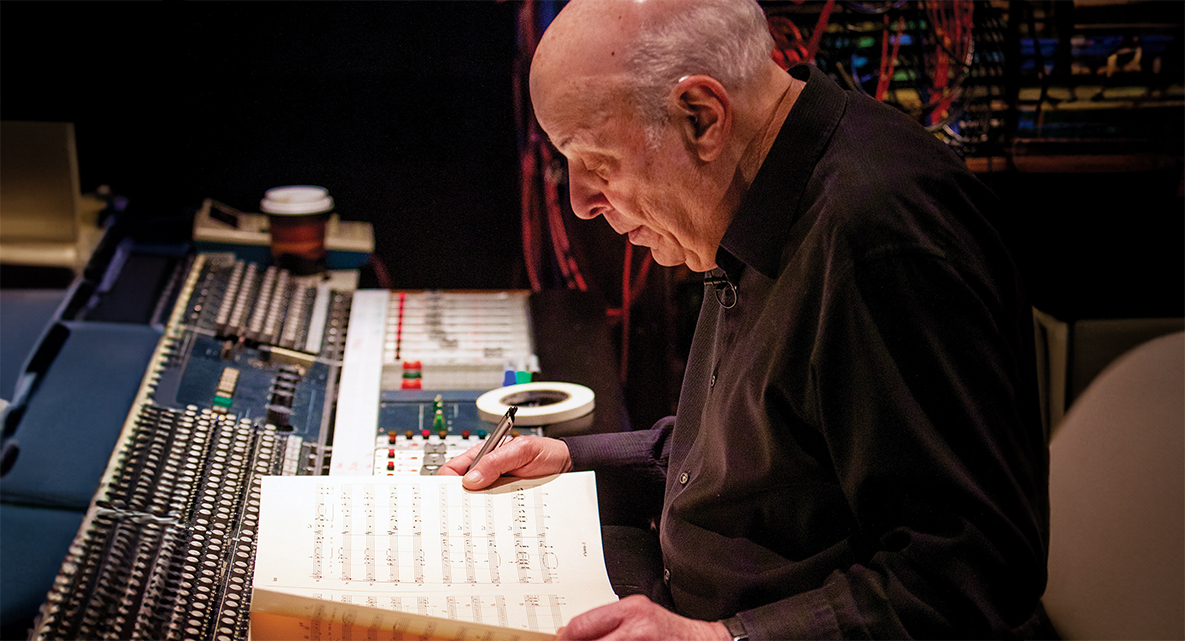
“So that was my start,” Charles says. “I was a sponge. I think everyone has one person that can teach and inspire them, make them believe they can do what’s in their heart to do. That’s the message I try to pass on to young people—to go for what’s in your heart. But learn your craft.”
None of which explains how a young, classically trained pianist and lover of salsa became such a prolific songwriter and scorer of films.
“I never had any ambition to be a songwriter,” Charles says. “But I always dreamed of composing for film.” That dream was realized when director Larry Peerce hired him to score the 1967 film The Incident. Soon after that, he slipped into songwriting when songwriter Bob Crewe asked him to collaborate on songs for the Jane Fonda film Barbarella. Then Charles was hired to work with lyricist Norman Gimbel on the family film Pufnstuff (based on the kids TV series H.R. Pufnstuff), and thus began one of the most successful songwriting collaborations in the history of Hollywood and all of popular music—nearly 200 songs for film, TV, theater, and record albums. In addition to the hits and themes already mentioned, the duo wrote the Oscar-nominated “Ready to Take a Chance Again” (popularized by Barry Manilow) and the Laverne and Shirley theme “Making Our Dreams Come True.”
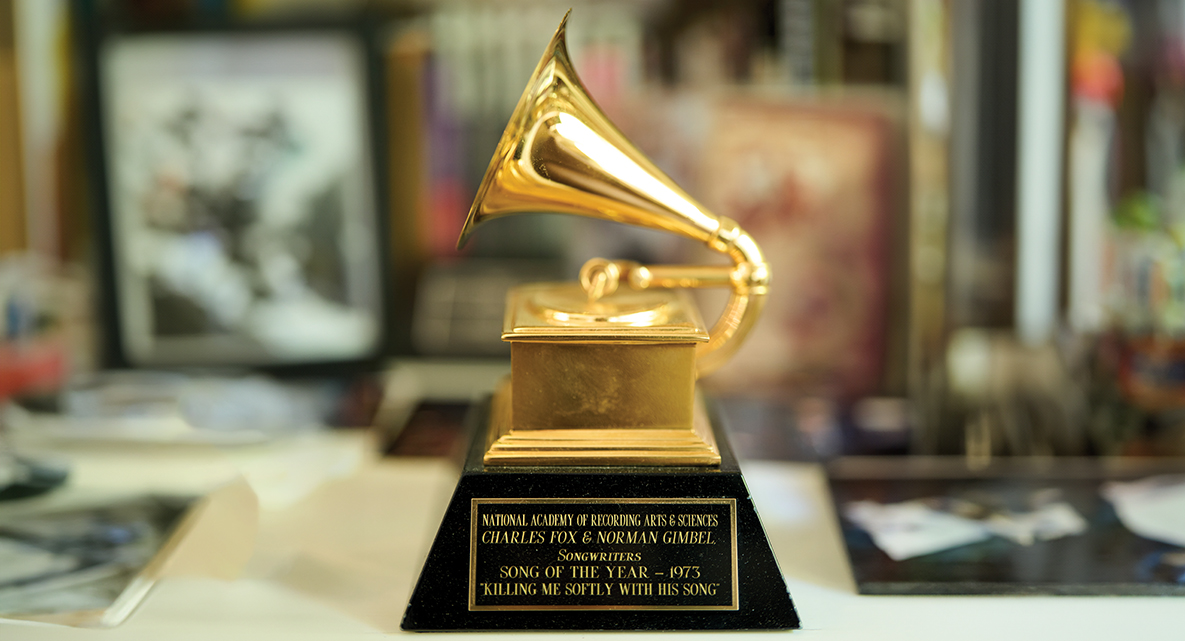
“So I became a songwriter,” Charles says. As for his move from New York to LA, that happened when Larry Peerce and Stanley Jaffe hired him to score the film Goodbye Columbus. “Paramount brought me out, and they sent a limo for me. They said, ‘You’ll see a parking space for you.’ And guess what: I saw my name right next to Henry Mancini. And Neil Hefti on the other side. I thought I’d died and gone to heaven.” Three months later, he moved his family to LA.
All that might suggest that Fox’s zenith was long in the past. Not at all the case. Yes, as we tour the walls of his lovely studio, we see annals of history. Photos of Charles with Bill Clinton, Arnold Schwarzenegger, songwriter and friend Paul Williams, Ron Howard and Henry Winkler. Charles with Princess (now Queen) Camilla, who informs him that “Killing Me Softly” is her favorite song. Discs of his nearly 100 films. Dozens of his LPs. His Grammy Award for 1973 Song of the Year.
But he also shows me thick scores of his ballet pieces. His newest, Salsa Til’ Dawn, saw its premiere just last year in San Francisco by the Smuin Contemporary Ballet, which also performed his Zorro! earlier this year. And resting on a coffee table in front of me as we chat is another thick score titled Ain’t That Jazz, a brand-new Broadway-style musical he cowrote with Alain Boublil, who also wrote Les Misérables and Miss Saigon.
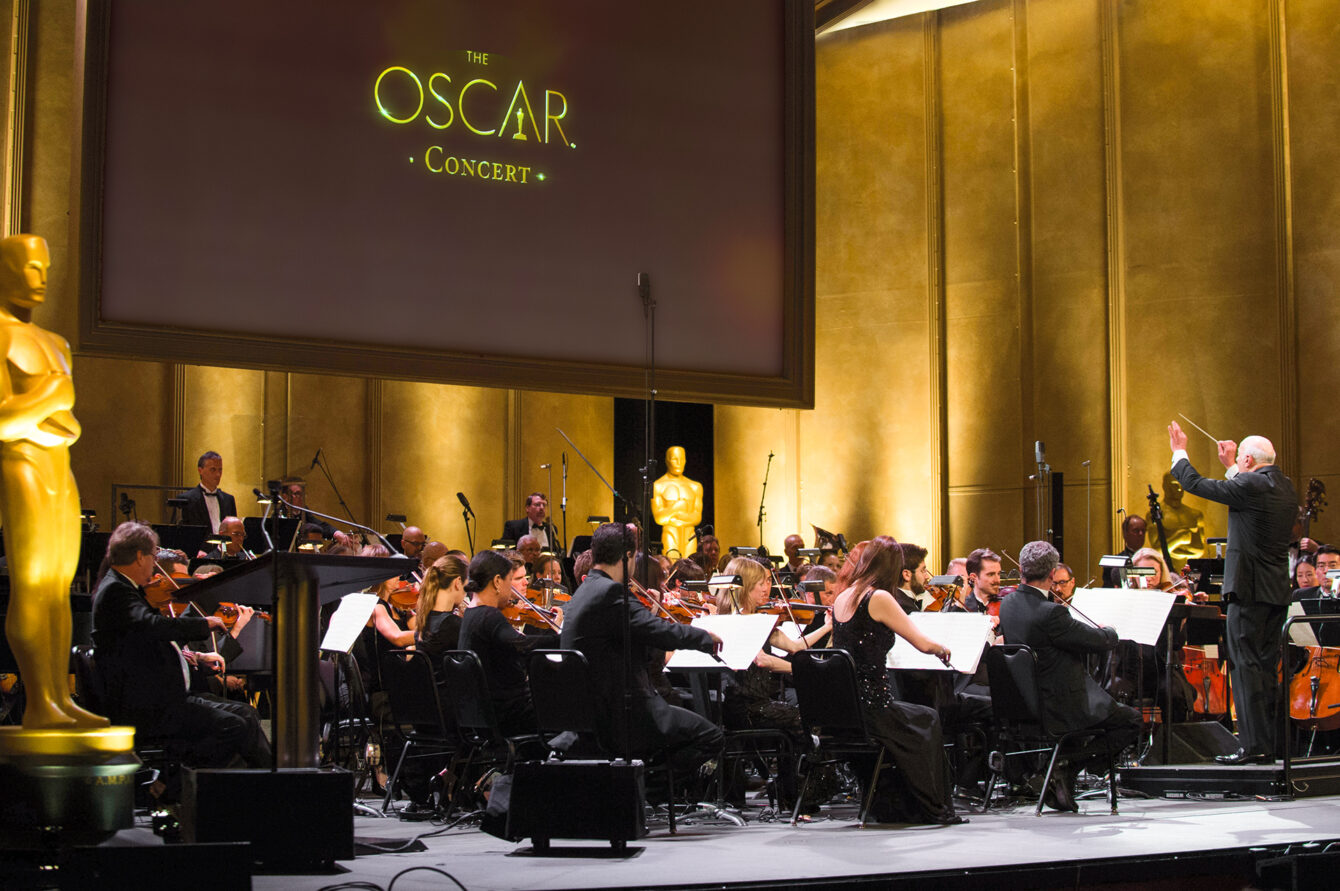
One delight that comes across strongly in the new documentary is Charles’ love for his family. At one point his wife, Joan, sings a charming duet of Cole Porter’s “It’s De-Lovely” with her husband of 61 years. “When I was a young boy in the Bronx,” he says, “my life revolved around three things: family, friends and music. You know, after all these years, nothing has changed.” His three children are Rob, a screenwriter; David, a businessman; and Lisa, a deputy district attorney. Spending time with the composer, you can’t help but note he enjoys talking about his seven grandchildren as much as he does music.
To celebrate the release of the film in April, Charles ventured to Hollywood to receive a star on the Walk of Fame, and up to Herb Alpert’s Vibrato Grill to perform a set of salsa, TV themes, ballads, jazz (two pieces he wrote for Dizzy Gillespie) and more salsa. Lots of salsa. On stage were a troupe of musicians, singers, percussionists—and an 83-year-old keyboard player. Together they rocked the sold-out joint for two hours.
At one point, two of Charles Fox’s musical worlds conjoined when the troupe performed the theme to Wonder Woman—as a salsa piece. “I keep finding new adventures in music,” he had told me in our interview.
Watching that performance, I recalled a line Charles speaks in the film: “There’s a very spiritual bond between people who sit next to each other and play the same notes.” That was evident among the musicians that evening who were clearly having a very good time. But it also applies to those of us privileged to sit together and listen to such joyous music. Or even better—to dance to it.
Killing Me Softly With His Songs is available for rent or purchase on most major streaming platforms.
Multi-Instrumentalist Photo Ops Releases 3rd Single from Forthcoming LP
LA-based singer/songwriter Terry Price comes back refreshed and renewed after a long hiatus.
Chasing Waterfalls Around the Golden State
California’s cascades are a sight to behold!
The San Francisco Symphony Releases 18 Hours of Musical Moments Online
Celebrating the masters and their music.
Get the Latest Stories




